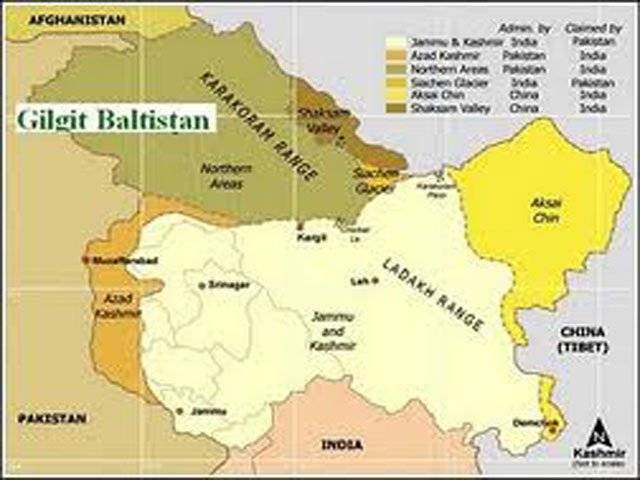With the world's attention focused on the flood-ravaged Indus River Valley, Pakistan is handing over de-facto control of the strategic Gilgit-Baltistan region to China, an avowed pro-India American author claims. In an article published in The New York Times, Selig Harrison, known for his obsessive anti-Pakistan posture, said there were two important new developments in Gilgit-Baltistan; a simmering rebellion against the Pakistani rule and the influx of an estimated 7,000 to 11,000 soldiers of the Chinese People's Liberation Army (PLA) in the area, which is closed to the world. "China wants a grip on the strategic area to assure unfettered road and rail access to the Gulf through Pakistan", said Harrison, who is currently director of the Asia Programme at the Center for International Policy, a Washington-based think-tank. For that purpose, China is building high-speed rail and road link, which would enable the Chinese to transport cargo and oil tankers from eastern China to the new Chinese built Pakistani Naval base at Gawadar, Pasni and Ormara in Balochistan, just east of the Gulf in 48 hours. "Many of the PLA soldiers entering Gilgit-Baltistan are expected to work on the railroad. Some are extending the Karakoram Highway, built to link China's Xinjiang province with Pakistan. Others are working on dams, expressways and other project," Harrison wrote. He said that mystery surrounds the construction of 22 tunnels in secret locations, where even Pakistanis are barred. Tunnels would be necessary for a projected gas pipeline from Iran to China that would cross the Karakorams through Gilgit. "But they could be also used for missiles storage sites," the author said. "Until recently, the P.L.A. construction crews lived in temporary encampments and went home after completing their assignments. Now they are building big residential enclaves clearly designed for a long-term presence," Harrison claimed. "What is happening in the region matters to Washington for two reasons. Coupled with its support for the Taliban, Islamabads collusion in facilitating Chinas access to the Gulf makes clear that Pakistan is not a U.S. 'ally.' Equally important, the nascent revolt in the Gilgit-Baltistan region is a reminder that Kashmiri demands for autonomy on both sides of the cease-fire line would have to be addressed in a settlement". Harrison asserted that there was "widespread brutally suppressed" local movements for democratic rights and regional autonomy in both Gilgit and Baltistan, where Sunni Jihadi groups allied with the Pakistani army have systematically terrorised the local Shia Muslims. "Gilgit and Baltistan are in fact under military rule," he said. Harrison said the US was uniquely situated to play a moderating role in Kashmir, given its growing economic and military ties with India and Pakistan's aid dependence on Washington. Washington should press New Delhi to resume autonomy resolutions with Kashmiri separatists as success would put pressure on Islamabad to stop aiding the insurgency in Kashmir Valley. "Precisely because the Gilgit-Baltistan region is so important to China, the United States, India and Pakistan should work together to make sure that it is not overwhelmed, like Tibet, by the Chinese behemoth," Harrison said in conclusion.
Saturday, April 20, 2024
China gaining de-facto control of Gilgit-Baltistan, claims pro-India US author

Pak economy improving, funds will be provided on request: IMF
9:57 PM | April 19, 2024
Minister advocates for IT growth with public-private collaboration
9:57 PM | April 19, 2024
Judges' letter: IHC seeks suggestions from all judges
9:55 PM | April 19, 2024
Formula 1 returns to China for Round 5
9:05 PM | April 19, 2024
Germany head coach Julian Nagelsmann extends contract till 2026 World Cup
9:00 PM | April 19, 2024
A Tense Neighbourhood
April 19, 2024
Dubai Underwater
April 19, 2024
X Debate Continues
April 19, 2024
Hepatitis Challenge
April 18, 2024
IMF Predictions
April 18, 2024
Kite tragedy
April 19, 2024
Discipline dilemma
April 19, 2024
Urgent plea
April 19, 2024
Justice denied
April 18, 2024
AI dilemmas unveiled
April 18, 2024
ePaper - Nawaiwaqt
Advertisement
Nawaiwaqt Group | Copyright © 2024





